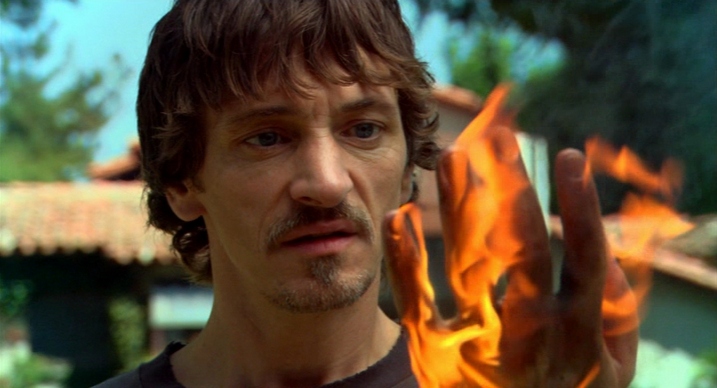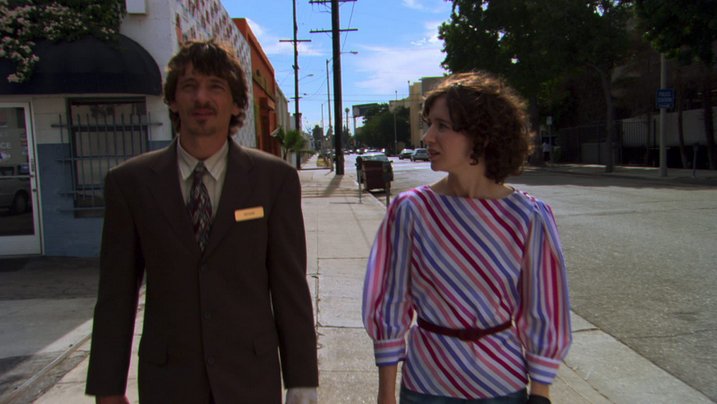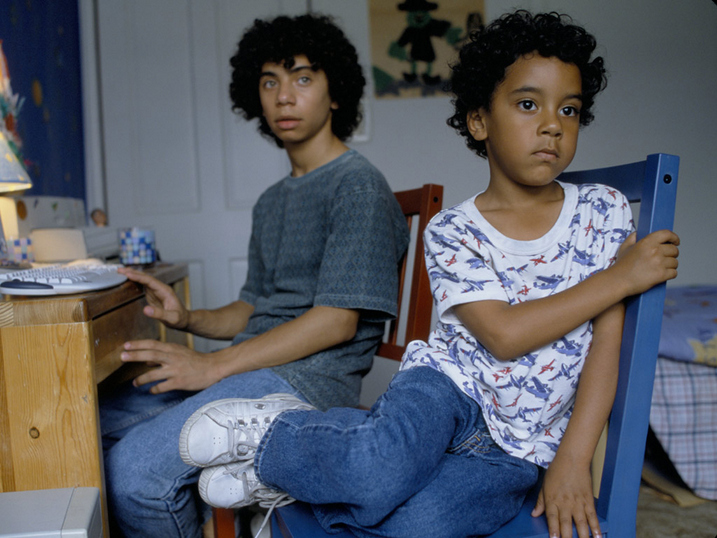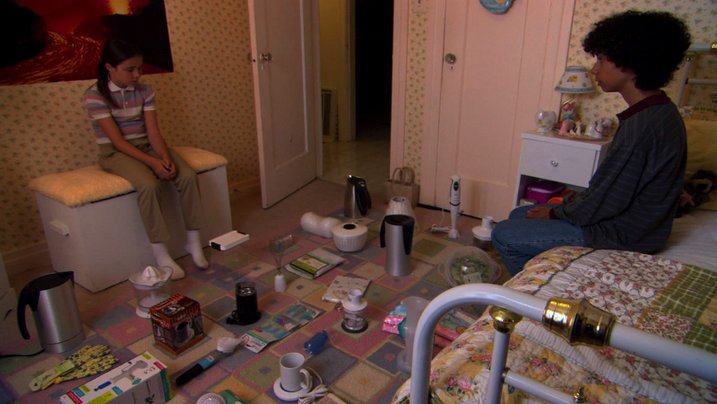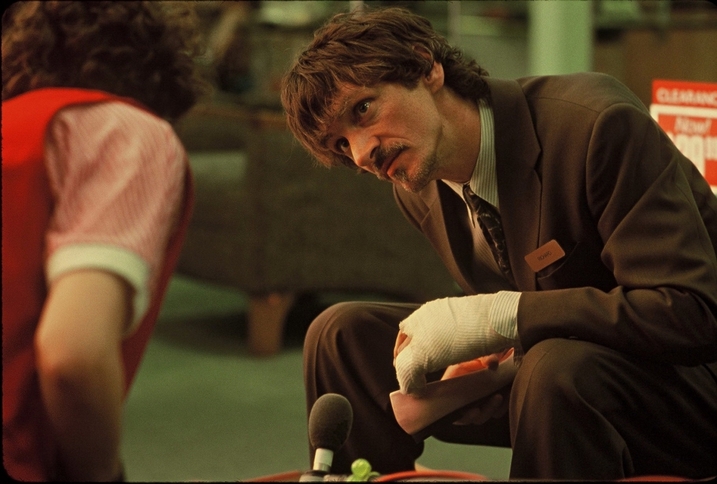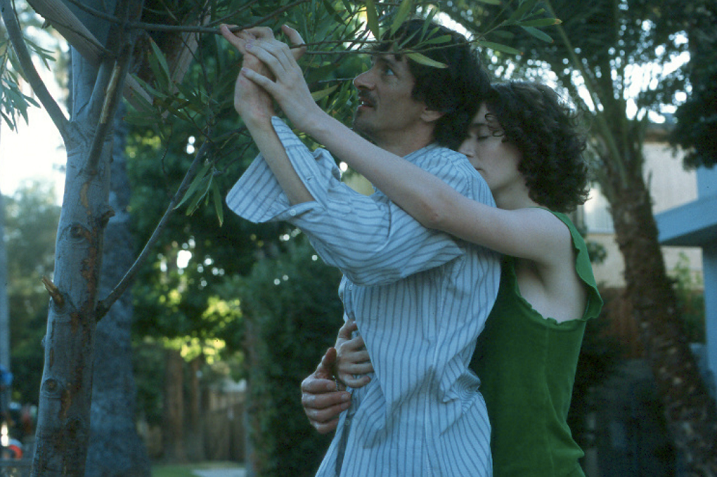Me and You and Everyone We Know – The Criterion Collection (Blu-ray Review)
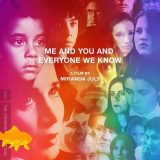 Back in the 00s, after years of short films and performance art, Miranda July wrote and directed her first feature film, Me and You and Everyone We Know. The offbeat comedy-drama was met with a lot of acclaim, including a win for the Camera d’Or at the Cannes Film Festival. It has since held a lot of respect for arthouse film fans, while July has continued producing films and being involved in various projects. The Criterion Collection now has a Blu-ray upgrade for the feature, complete with a set of extras that include some of July’s shorts, and more.
Back in the 00s, after years of short films and performance art, Miranda July wrote and directed her first feature film, Me and You and Everyone We Know. The offbeat comedy-drama was met with a lot of acclaim, including a win for the Camera d’Or at the Cannes Film Festival. It has since held a lot of respect for arthouse film fans, while July has continued producing films and being involved in various projects. The Criterion Collection now has a Blu-ray upgrade for the feature, complete with a set of extras that include some of July’s shorts, and more.
–
Film: 




Me and You and Everyone We Know follows the lives of several characters who are all intertwined by way of their neighborhoods, jobs, and other connective tissue shared between them. Our primary focus is on the Swersey family. Richard (John Hawkes) is a shoe salesman who has recently separated from his wife (JoNell Kennedy) and has moved into an apartment with his two boys, Peter (Miles Thompson) and Robby (Brandon Ratcliff). He soon meets Christine (July), an artist who also drives seniors as a sort of cab driver to make a living. They become drawn to each other, but life isn’t always so simple.
Much of the film is about relationships and the strange bonds people form. July relies on a diverse cast, young and old, to delve into the curiosities people have with each other, and what struggles there are in an attempt to connect. Some of these are implausible because of apparent differences, others merely serve as a reminder of what is considered appropriate. Things can work out in some instances, and the tricky thing July pulls off is having the audience root for one key relationship to happen, amid all the uncertainty taking place in this particular neighborhood.
I tend to find contemporary art quite divisive in my own mind. In particular, the sort of modern art that provokes thought when seen in a gallery. It’s not a passion or a field of study of mine, so it generally comes down to my initial reaction to something. Me and You and Everyone We Know finds a way to incorporate this element into the film, with a concentration on Christine’s work as an artist, and what it shows to other characters we meet. At the same time, there are simple ways characters express themselves, whether through messages posted in a window or internet chatlines, that also speak to the quirky details of who a person is.
The key to the film’s success is in its tone. It would be a specific choice for the film to play into the serious nature of what these characters are going through, or treat all of the art on display with no sense of irony. However, July knows the inherent comedic value that comes from how some of these moments can appear. One could say there’s some mild social commentary about the art scene taking place, but I’m not so sure. Yes, it’s easy to make the joke about someone looking at garbage and explaining its beauty, only to be told it actually is garbage, but the film is too earnest for that.
Creating a lasting value in a film like this makes it feel all the more special. Not everyone will respond the same way, but there’s a certain beauty to individual sequences that have clearly registered enough to make the film a critical favorite and one that has been looked back upon in the years since. I’m thinking of the film’s opening titles, where Richard unsuccessfully tries to impress his boys with a fire-related trick; a walk Richard and Christine take, where they talk about what a relationship would look like; an understanding a character has of a particular repetitive noise, or the meaning behind “))<>((.”
Much of this is aided by the dialogue. The film is stylized as it is, so having characters speak in enlightened bursts of advice was not hard to get behind. I can say the same for conversations being shared because of how grounded it feels in the way the younger characters address each other, or the detached matter-of-factness of people trying to best explain their desires. Having a sense of awkwardness layered underneath the surface does all the more to help balance the sense of discovery characters are having with each other.
Helping out plenty is the score by Michael Andrews, who has been a significant presence in arthouse and studio comedies. There’s a precise nature to everything witnessed throughout this film, and between Andrews and the photography by Chuy Chavez, this little movie delivers on seeing the wonders of real life on a small scale. That’s the benefit of a film with such assuredness as a whole. July can take on the influences of experimental cinema and the works of Agnes Varda, while also being paired with good filmmakers.
Having first watched this film around the time of its release, I’ve held onto it as a favorite thanks to how satisfying it all feels. There’s a sense of humor that can be both very real and uncomfortable, yet the characters have a sincerity to hold it together. Adding to his is how the various subplots all conclude, building off the strengths I found in how each character was intertwined within this story. With the result that feels like an especially great sense of catharsis for characters going through individual struggles, real joy can be had from Me and You and Everyone We Know.
Video: 




Encoding: MPEG-4 AVC
Resolution: 1080p
Aspect Ratio: 1.78:1
Details: The high definition transfer was completed in a fully digital workflow, and approved by director Miranda July.
Clarity/Detail: Shot digitally, while not specified as a full-on 2K or 4K digital remaster of the original footage, there’s a strong sense of clarity that makes this a significant upgrade from the original DVD, while still holding onto a vintage 2005 look as far as the earlier days of digital photography. This is especially notable in the outdoor scenes, as characters move around at different times of day, with the details emerging in various ways thanks to how the light plays with the footage. Still, for an independent film, it’s a good step up.
Depth: the dimensionality of various scenes plays well to keep characters from every appearing flat onscreen. Scenes in the shoe department show this best, given all the activity taking place in the foreground and background.
Black Levels: The black levels are great. Nighttime scenes play well thanks to the digital look of the film doing well to establish light, with the black levels showing no sign of crushing.
Color Reproduction: If one didn’t notice, pink is a dominant visual motif throughout the film. It represents a sense of creativity for each of the characters, but particularly Christine. It plays well in the movie, as it stands out the way that is needed. The same can be said for the use of color throughout the film, which hits in the ways needed for a movie that is somewhat muted, but expressive when it needs to be.
Flesh Tones: The detail level seen in the actual characters is impressive,
Noise/Artifacts: Nothing to see here.
Audio: 




Audio Format(s): English DTS-HD Master Audio 5.1
Subtitles: English SDH
Details: The 5.1 surround audio for this release was mastered from the original digital audio files using Pro Tools HD.
Dynamics: There’s a lot to enjoy about this mix, as the presentation is strong enough to deliver on the film’s unique score, the placement of certain music cues, and the dialogue. It’s all very effective in delivering on a quality audio track.
Low-Frequency Extension: There’s no real action or big moments to really push the sub-woofer to any major highs, but the audio isn’t flat either.
Surround Sound Presentation: Strong and center-focused, but enough is going on in the sound design to apply the supporting channels when needed.
Dialogue Reproduction: Everyone is heard loud and clear.
Extras: 




While one could assume a commentary would be going too far for July as far as explaining her work, there are plenty of interviews digging into the development of the film, how certain scenes came together, and more. There are also short films from July, as well as archival work from the Sundance Directors Lab, and more. A retrospective look back with the rest of the cast would have been great, but given the nature of this film and the experimental artwork from July, this is about all one would ask for with a release of this specific film.
Features Include:
- Miranda July: Where it All Began (HD, 51:23) – A new documentary featuring a conversation between July and Lena Dunham about July’s artistry, where it comes from, and making her first film.
- Open to the World (HD, 10:26) – A new documentary short about the 2017 interfaith charity shop and artwork July created with Artangel.
- July Interviews July: Deauville, 2005 (SD, 13:54) – July’s art project made during a trip to France to screen the film.
- Sundance Directors Lab (SD, 19:59) – A look at the early stages of developing the film, with workshop footage that evolved over time, with commentary by July.
- The Amateurist (SD, 14;06) – July’s 1998 short film.
- Nest of Tens (SD, 27:24) – July’s 2000 short film.
- Joanie 4 Jackie – Four films from July’s video chain letter, and a documentary about the project.
- Overview (SD, 16:08) – A short documentary providing an overview of this project.
- Dear Mom (SD, 2:57)
- The Slow Escape (SD, 20:24)
- No Place Like Home #1 and #2 (SD, 12:07)
- Gigi (From 9 to 5) (SD, 7:55)
- Deleted Scenes (SD, 6:29)
- Trailer (HD, 2:30) –
- PLUS – Essays by artist Sara Magenheimer and novelist Lauren Groff
Summary: 




This felt like an inevitability. I won’t be surprised if July’s The Future will make its way to Criterion at some point as well. Me and You and Everyone We Know is a perhaps the epitome of indie filmmaking in the 00s, but its strength comes from all the ways it feels distinctly its own, matched with terrific performances and writing. This new Criterion release does an excellent job of bringing the film to Blu-ray, complete with a bevy of extra features further delving into a similar artistic world, allowing for insight into this film and the filmmaking process as a whole. For those looking for an out-there comedy odd levels of insight, this is a good one.
Order Your Copy Here:

